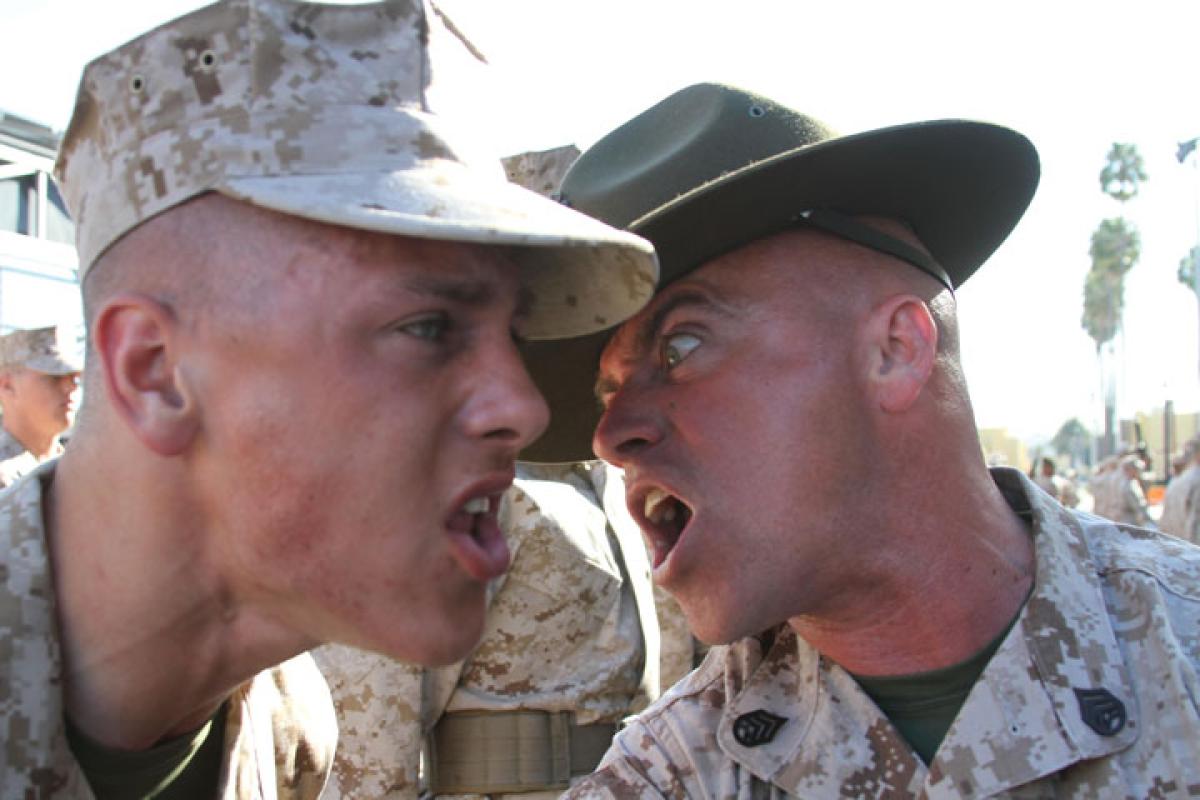“Don’t sweat the small stuff” is a common phrase, but without the proper context its meaning might be misinterpreted. It should not mean we ignore the seemingly unimportant details and focus only on more imposing and obvious specifics. That is a dangerous mindset because success or failure often depends on minute details. What “don’t sweat the small stuff” should mean is, “don’t worry about the little things you cannot control.” Do not let minor irritations outside your sphere of influence distract you.
Success in every military service requires a high degree of discipline, both administered and self-directed, and high levels of discipline are easiest to recognize in the small stuff. Even requirements that appear petty and inconsequential are important. For example, when a sailor or Marine consistently ensures their physical training uniform shirt is tucked in—even when separated from their group—a high degree of discipline exists. When that shirt is not maintained properly, the opposite is true.
Disciplined military professionals do not allow themselves or their shipmates to ignore minor requirements even when there is no direct mission impact. They understand that even the simplest regulations matter. And they are more likely to follow rules that do affect mission success.
Whenever we allow someone to get away with a small infraction, however trivial, we encourage disobedience through our inaction. Every time we ignore the small stuff, we make apparently minor requirements less important. Eventually the less important things become unimportant; and small stuff ignored becomes nothing at all. This leads to bigger and more important items becoming the small stuff, and the stage has been set for those requirements to be ignored as well.
When any standards are overlooked or ignored, you can bet the precursor was a leader or group of leaders who ignored smaller missteps. Undisciplined behavior was encouraged because it was not corrected, simply because someone didn’t sweat the small stuff.
In a recent blog post, Commander Sean Heritage wrote that one of the truest ways to value people is to enforce high standards. He explained that by not accepting subpar performance, and caring enough to tell “juniors, peers, and seniors alike” when they are “missing the mark,” we create teams “to which high performers want to belong.” This is solid leadership advice appropriate for teams of all sizes, from individual work centers to entire services. Holding people accountable and honestly telling them when they have fallen short, and when they have achieved or surpassed the standard, is a hallmark of effective leadership.
Let’s face it, there are hundreds of rules, regulations, and requirements to remember; but there is a reason behind each one. Even the most obscure and seemingly meaningless rule is important. In many areas today, this does not appear to be the default mindset, and it could be a reason so many military members, from E-1 to O-10, bring discredit to our services by violating laws and standards of acceptable behavior.
This attitude must change. This is not a call for more non-judicial and judicial proceedings for every minor violation. Accountability and corrective actions come in many forms, most with no long-term career implications. Sometimes the action is just caring enough to point out a flaw. Leaders throughout the chain of command must use their lawful authority to ensure all standards are met.
The most effective accountability is when peers hold each other to task without involvement from leaders. This reflects the indirect influence of superiors who set high expectations for their people and themselves. This results in a well-disciplined and high-performing team that is likely to be self-directive.
When self-discipline and peer accountability are widespread, there is trust throughout the chain of command. Leaders can simply state expected standards and outcomes and anticipate their people will achieve them. Peers and lower-level leaders will correct failing behavior along the way, allowing everyone above them to concentrate on the more important issues facing military professionals every day.
Not until holding people accountable for every rule becomes the pervasive attitude will we achieve the discipline and trust on which our services depend. Until then and long after, we must continue to sweat the small stuff.



